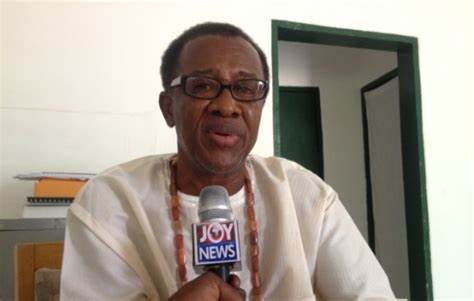Former Pro-Vice Chancellor of the University for Development Studies, Prof. David Millar has said Ghana is not borrowing enough to meet its developmental needs.
Speaking in an interview on Dreamz FM’s The State of Our Nation, Prof. Millar said claims that the country has accumulated huge debts and risk becoming a debt-distress country if it does not slowdown on its appetite for borrowing are unfounded, arguing that the country needs to secure more loans in order to meet its developmental needs and improve the living conditions of citizens.
He contended that countries all over the world including developed countries have accumulated huge debts but are still borrowing for their developments hence, Ghana cannot be an exception.
“I take the position that sometimes you need loans and go for more especially from the devils themselves. But invest it. We are not procuring enough. We need more loans. Which country is not indebted? Even USA is indebted. They are also highly indebted. If you want development, you have to go for a loan and a serious businessman will see it as a feasible project,” he stated.
He added “If a government is borrowing and using it responsibly and it is visible, why shouldn’t it borrow more? In any case, somebody knows that we are highly indebted but when we go, he gives us more”.
For him, there is nothing wrong borrowing even at high debt levels as long as the funds borrowed will be channeled into capital investment and other projects which will generate revenue to pay off the loan.
“If it is to borrow and come and subsidize your recurring expenditure, that is a no go area. You should borrow for capital investment and you should commit for capital investment,” he said.
He wants government to give the various regions the free hand to go onto the capital market and secure loans to undertake developmental projects. He believes regions particularly those in Northern Ghana will be able to mobilize enough resources and address their pressing needs thereby bridging the developmental gap between the North and the South if they are allowed to borrow on their own.
Ghana has been classified as a high-risk of debt distress country after its public debt stock rose up significantly hitting 76.6 percent of GDP. The World Bank, in August this year, warned that the country could default in servicing its debt if it is hit by external or domestic shocks.
But the government has assured that it is effectively managing the country’s debt. Although it attributed the rising debt levels to the debilitating effects of the Covid-19 pandemic, the opposition NDC insists the high debt levels are as result of the government’s mismanagement of the economy.




